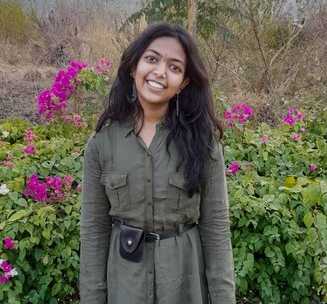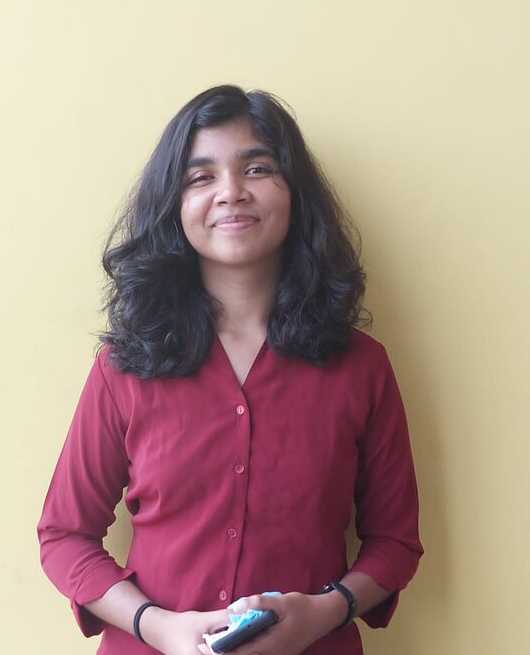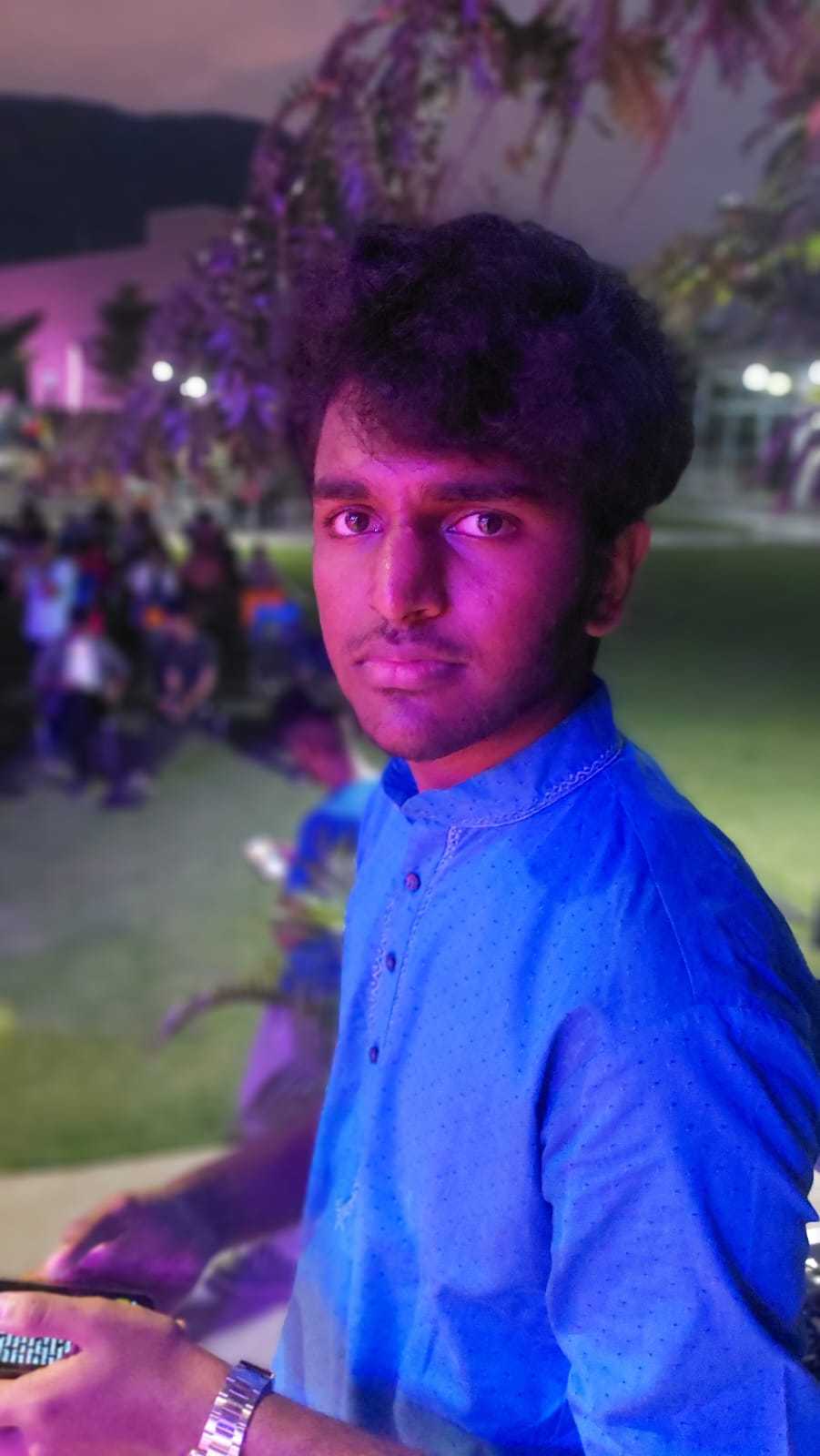Wisdom Wednesdays: Summaries for the Occupied Minds
Campus NewsAiswarya Pradeep, Krithi Shailya, Akhil Krishnan, Sneha M S
Explore condensed insights from three months of distinguished lectures at IIT Tirupati, ranging from environmental histories to philosophical reflections and cutting-edge scientific revelations.
At IIT Tirupati, we roll out the red carpet for distinguished speakers at least once a month, turning our Wednesdays into a spectacle of knowledge and wit. Over the past three months, our institution has had the honour of hosting lectures by experts renowned in their respective fields. These erudite individuals bring forth a wealth of knowledge and experience, significantly enriching our intellectual landscape. It is a privilege to have the opportunity to partake in these enlightening sessions and glean insights from these esteemed experts.
But we get it – life happens, and not everyone can make it to the front row. So, for those who missed out, fear not! Team Udaan has whipped up some delicious summaries of these mind-blowing talks. We won't claim it's as good as the real thing – it's like trying to capture fireworks in a bottle – but hey, we're giving it our best shot.
We sincerely hope you find this curated collection both enlightening and enjoyable.
Professor Ramachandra Guha
The eminent historian and biographer Professor Ramachandra Guha, who is often acclaimed as one of the most influential intellectuals of our times, delivered a distinguished lecture on “Lineages of Indian Environmentalism” on November 8th 2023, at IIT Tirupati. Prof. Guha, who has done extensive historiographic studies on Indian environmental movements, began his talk by mentioning the popular environmental protests such as the Chipko movement and Narmada Bachchao Aandolan, which are widely considered as the origination of the Indian environmental thought and practice. Though these movements had important roles in initiating an intellectual debate on sustainable development in Indian academic circles, Prof.Guha goes on to reorient the focus of his lecture to trace the lives and works of early environmentalists (pre-Chipko) of India. During the course of his hour-long lecture, the noted environmentalist introduced five individuals who advocated for the cause of a greener and more sustainable existence during the pre-historic/pre-modern period of Indian environmentalism. The speaker, in his lecture, shredded light towards the thoughts and contributions of people such as Rabindranath Tagore, Mira Behen, RadhaKamal Mukherjee, Patrick Giddis and M.Krishnan through reviving their often overlooked and unaddressed bequest to the Indian environmental thought.
- Aiswarya Pradeep
Professor S. Ranganathan
In an engaging session led by the accomplished Prof. Ranganathan S, attendees were prompted to delve into self-reflection and unveil their latent powers for exponential personal growth. A distinguished Vedanta Knowledge Facilitator with a rich academic background from IIM Bangalore and IIT Madras, Professor Ranganathan S delivered a talk that resonated with fundamental human principles. Focused on embracing ambitious goals, attracting influential allies, and nurturing a strong character, the session explored the pivotal enablers of time, energy, and money.
Prof. Ranganathan S, a Visiting Professor at the Indian School of Business, Hyderabad, exuded an infectious optimism, weaving insights on emotions, enablers, and outcomes. The talk underscored the perpetual challenge of lacking one of these crucial enablers at different life stages—be it money in youth, time during the hustle, or energy in later years. The central theme emphasised becoming the architect of one's choices, acknowledging the interdependence of time, energy, and money, and leveraging them effectively for fulfilling outcomes.
The professor touched upon the concepts of dharma, values, and the symbiotic relationship between power and purpose. In a dynamic and interactive discourse, the audience gained introspective insights, making the session a truly enlightening experience.
- Krithi Shailya
Professor Amitabha Ghosh
“Today we’ll have a lecture delivered by quite a special professor, one who was the Advisor of our Professor N. N. Kishore”, we were told. Obviously, curiosity and amazement knew no bounds. It’s not everyday you get to imagine your professor being a student working under another professor.
The session was led by Amitabha Ghosh, an Emeritus Scientist of Physics from the Indian National Science Academy, New Delhi. He took us on a journey through time, reimagining and re-examining the science we believe today to be true. Starting off with the message that “nothing in physics is yet fully understood and every single concept still has room for research and further exploration”, he diverted our attention towards Newton’s II Law of Motion. Popularly known to be a separate standing Law, and one that cannot be derived, he proceeded to explain how it indeed can be derived from Gravitational Principles and thereby established the mass equivalence of gravitational and inertial equations, albeit with some additional terms in the Law’s equation that supposedly held significant meaning. As we further explored this newly derived equation, we saw that the red shift of light observed by the James Webb Space Telescope could be understood by these new terms. He dramatically concluded that we are free to dispose of the “Big Bang Theory”, as we no longer needed it to describe astronomical phenomena. He used this shock to drive home a simple message- “Nothing in Physics is done and dusted.”
The lecture surely left all of us in different kinds of awe- some quiet and contemplating, while others couldn’t contain their questions within the bounds of what sitting would allow them to.
- Akhil Krishnan
We had an opportunity to attend another by Prof Ghosh titled "Fabrionics," where he underscored the historical correlation between technological leaps and industrial revolutions. Drawing parallels with past revolutions driven by steam engines and microscale chip manufacturing, Prof. Ghosh posited that the next transformative wave would be catalysed by self-assembling materials capable of manipulating matter at the nanoscale. He emphasised their potential to revolutionise various sectors and challenge traditional manufacturing approaches.
Self-assembling materials, according to Prof. Ghosh, extend their impact beyond the origins of cellular life. In fields ranging from diagnostics and sensing to biomaterials and bioelectronics, these materials offer customisable solutions with implications for healthcare, detection capabilities, tissue engineering, and biocompatible devices. Prof. Ghosh highlighted their potential in energy generation, catalysis, and nanocomposites, presenting sustainable alternatives with environmental benefits. Furthermore, in drug delivery systems, these materials enable personalised medication administration, enhancing efficacy while minimising side effects.
Prof. Ghosh concluded on an optimistic note, urging newer and younger institutions like IITs to establish interdisciplinary labs, foreseeing them as the backbone of the impending industrial revolution.
- Sneha M S
Professor Pramod K. Nayar
Prof Pramod K Nayar, an esteemed scholar of literature from the Department of English, University of Hyderabad, delivered an extra special talk on the much diverse and intricate provinces appertaining to "Literature of Climate Crisis". He reviewed an assortment of environmental fiction as a cultural response to the looming crisis by mapping the generic aisles and affective pathways of the climate literature. Prof.Nayar started his talk by elaborating the recurring themes of home going, species invasion as well as social relish and went on to address the elegiac tone that is persistent in these texts. Through discussing the concept of Mother Catastrophe by Alexis Wright, a terminology that has immense potential to replace the concept of "Mother Nature", the speaker illustrated the various subgenres in literature of climate crisis. The literature of climate denials, econovels that anticipates trauma, ecothrillers, disaster fictions, rewilding narratives and post-apocalyptic accounts were some of the subcategories he elucidated with examples. As Prof.Nayar explained about the concept of "Ecodystopias", the talk took an interesting turn to a detailed discussion about gender in the ecodystopian novels. Dr Nayar, who has done remarkable research in areas such as ecoprecarity and vulnerability studies, concluded his lecture by citing some of the fictive illustrations about reproductive futurism where the state mechanisms revolve around reproduction and anxieties associated with it.
- Aiswarya Pradeep
As we conclude this enriching three-month stretch, remember that the journey of knowledge at IIT Tirupati continues. Keep your Wednesday afternoons open because you never know who might surprise us with their wisdom in the weeks to come. The allure of knowledge knows no bounds, and we anticipate more distinguished speakers gracing us with their insights. Stay tuned for more captivating Wednesdays!



